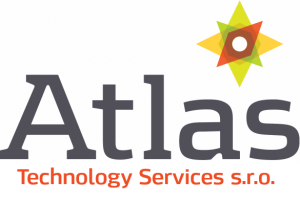Companies Want to Make More Investments in R&D while the Market Lacks Qualified Workers
14.12.2016Company: Deloitte
This year, over 80% of companies in the Czech Republic are planning to invest a higher amount (45%) in research and development or the same amount as last year (36%). Within two years, they would invest a larger sum if they could use various kinds of financial support (58%) or if they had a larger number of qualified and experienced employees (65%) at their disposal. However, the local market still lacks such specialists. These are the results of the fourth edition of the Tax and Grant Support for Research and Development Activities study issued by Deloitte.
The survey further showed that almost 40% of companies in the Czech Republic consider the uncertainty accompanying the assessment of grants or deductions during reviews to be the biggest worry, which is 5% more than last year. More companies are also dealing with the issue of how to correctly define R&D activities.
“The fact that companies are worried by the uncertainty during reviews as well as the definition of R&D activities a bit more than before might relate to the higher number of tax deductions utilised over the recent years. It may also relate to the launch of the new programming period for 2014-2020 and the uncertainties in grant implementation manuals,” said Luděk Hanáček, partner at Deloitte’s Tax&Legal function in charge of R&D support. He adds: “More deductions utilised for R&D and a greater number of allocated grants lead to an increased number of reviews on the part of tax and other authorities and thereby a higher likelihood of subsequent disputes. The Czech Republic has also started to see some of the disputed cases concerning tax deductions medialised, which has an adverse impact on companies’ opinions. Such tax uncertainty can also affect attitudes of foreign investors.”
Countries support R&D either directly in the form of grants or indirectly by means of tax deductions or tax relief. “Companies in the Czech Republic efficiently combine all the available kinds of support. Compared to the forms of R&D support in Central Europe, the Czech Republic is among the countries with the greatest numbers of instruments at their disposal,” says Luděk Hanáček. “However, some of them, such as grants with conditional payback, which play a material role in supporting research, are missing here,” adds Petr Očko, Chairman of the Technology Agency of the Czech Republic.
Tighter cooperation between the private and education sectors can assist in improving the situation
If there is one thing missing in this respect, it is greater cooperation between the business sector and academia, and support for better work-life balance. “Cooperation between academia and private companies is, in fact, beneficial for both parties. Schools and research organisations can undertake interesting practical projects and obtain additional funds,” explains Luděk Hanáček. In this respect, the new ZETA programme of the Technology Agency of the Czech Republic should be of assistance, which focuses on supporting cooperation between academia and businesses and equal research opportunities for the rising generation of researches. “Support as part of the programme will be directed at where the market has failed. That is at support for cooperation between academia and the industry, and support for equal opportunities of access to research work for men and women alike. The programme should also set conditions that will lead to candidates having an optimal work-life balance at research institutions,” explains Petr Očko.
Last year alone, over 80% of the companies addressed cooperated with academia, mainly on the grounds of joint research and development (79%). Based on the government’s 2014 resolution, companies may include the costs of cooperation with universities and research institutes in their tax deductions. Furthermore, a tax deduction for support for specialised education was introduced.
The entire study entitled Tax and Grant Support for Research and Development Activities can be downloaded at: www.deloitte.com/cz/vyzkum-vyvoj.
Tags: Economics | Finance | Business Development | Movers & Shakers | Human Resources | Education | R&D |







